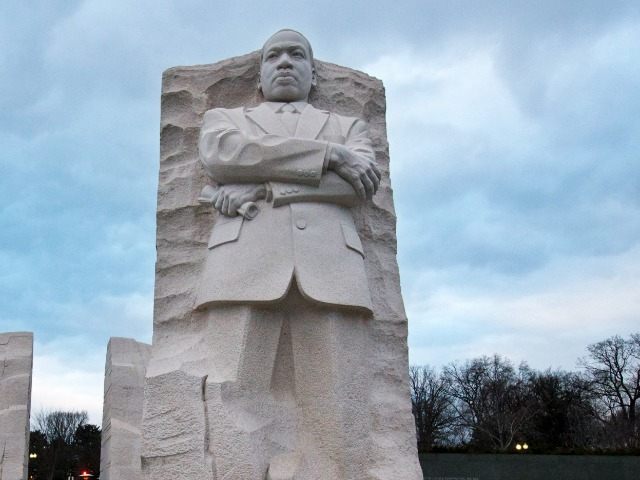Keep feeling the need for being first. But I want you to be the first in love. I want you to be the first in moral excellence. I want you to be the first in generosity. The Reverend Martin Luther King, Jr.
“Me.”
For just about all of us, it’s our favorite subject. It’s certainly our preoccupation from birth. As babies, if we’re hungry, we want food. If we’re tired, we want sleep. If something is bothering us, we want it fixed. And we let everyone around us know, as best we can, that we want it now!
“We.”
That’s the subject that was the preoccupation of Dr. Martin Luther King, Jr. Based on his unwavering commitment to the biblical Gospel of Peace, he called us to grow, to make room in our hearts for others. He entreated us to see beyond ourselves.
It was this call that led a nation to change its views on the civil rights of African Americans. It is this call that today will lead our nation to recognize the civil rights of our most oppressed minority — babies in the womb.
Dr. King challenged self-centeredness. He led us to acknowledge that blacks in the United States were treated as less than equal and that this was wrong. He forced us to stop averting our eyes from the cruelty endured daily by those of us who were deemed “inferior” or just “not the same.”
Dr. King made us see that we are the same. With the force of love, he made us realize that regardless of skin color, we are all included in the human family.
The abortion lobby, however, has always been about exclusion. It sells abortion by appealing to the “me” in all of us. It seeks to suppress love for others.
The latest gambit of the pro-abortion movement is to talk about removing the stigma of abortion. It calls upon us to believe that there should be no negative feelings about denying the humanity of other human beings. It urges us to believe that we should never feel wrong about discriminating against those less powerful than us.
In other words, the pro-abortion movement is using the same tactics used by segregationists in the 1950s and 60s. Its message is that we should not feel bad about oppressing a certain group of people because “they aren’t really like us.” Abortion advocates regard unborn babies, like African Americans in the eyes of racists, as not fully human.
There is a stigma to racial discrimination because we inherently know that it’s wrong to kill or oppress another. There is a stigma to abortion for the same reason.
Discrimination is based on fear – that somehow one person’s good is threatened by another person’s existence. Dr. King reminded us, however, that love casts out fear. He famously wrote in his “Letter from the Birmingham Jail:”
It is this “network of mutuality” which Dr. King recognized in his oft mentioned dream of a Beloved Community, a place where love brings justice, reconciliation, and redemption, a place where goodwill toward all is the norm.
In our statement “The Beloved Community and the Unborn,” which was also signed by Dr. King’s sister-in-law, nephew, and other civil rights activists, we state:
The work of building the Beloved Community is far from finished. In each age, it calls us to fight against poverty, discrimination, and violence in every form. And as human history unfolds, the forms that discrimination and violence take will evolve and change….
In our day, therefore, we cannot ignore the discrimination, injustice, and violence that are being inflicted on the youngest and smallest members of the human family, the children in the womb….
We declare today that these children too are members of the Beloved Community, that our destiny is linked with theirs, and that therefore they deserve justice, equality, and protection.
Abortion, obviously, most profoundly affects the person who is denied life and his or her mother who lives with that denial. But it also “affects all indirectly.” By accepting abortion, we accept brutal assaults on the bodies of innocent people. We accept the denial of rights to the weakest by looking the other way. We accept inhumanity.
The call to end abortion is a call to love. It’s a call to include all of us in the human family.
Dr. King, were he alive today, would want us to put aside the violence of abortion. He would call on us to consider our brothers and sisters and be “first in generosity.” He would challenge us to love.
Anyone who would like to sign on to the letter on the Beloved Community is invited to do so by clicking here.

COMMENTS
Please let us know if you're having issues with commenting.